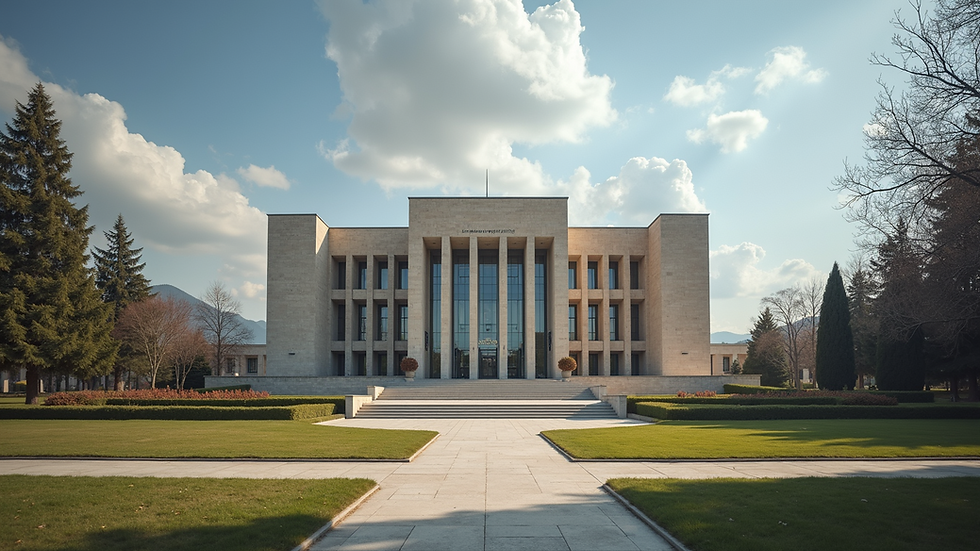Uncovering the Truth: Navigating the Complex Road to Justice in Post-War Albania
- ab le
- Mar 24
- 3 min read
The aftermath of war often leaves nations grappling with the effects of conflict, and Albania is no exception. Since the Kosovo War in the late 1990s, the country has faced the challenging task of reconciling its past while striving for a more just and fair future. This blog post explores the ongoing struggle for justice in post-war Albania and highlights the challenges faced by victims, along with efforts to seek redress.
The Legacy of War
The Kosovo War was not just a military conflict; it left deep scars on the collective conscience of the Albanian people. The demand for accountability has been intertwined with a broader quest for national identity and social unity. Many families are still seeking justice for their sufferings, with approximately 1,600 individuals still unaccounted for, their unresolved cases haunting communities.
Despite various international and local initiatives aimed at addressing these injustices, many cases remain stagnant. Reports indicate that around 90% of war crime cases have seen little to no progress due to systemic inefficiencies within the judicial system. This lack of movement deepens the pain of victims and their families, raising questions about the commitment to justice.
The Role of International Organizations
International organizations have played a critical role in addressing war crimes from the Kosovo War. The International Criminal Tribunal for the former Yugoslavia (ICTY) was established to prosecute severe crimes committed during the conflict. However, its legacy has been mixed. Many feel that the slow pace of justice has hindered true reconciliation, with only a small fraction of cases leading to convictions.
Furthermore, organizations like the European Union have been involved in promoting legal reforms and supporting fair trial standards. Despite this involvement, reaching these standards is challenging. Political interference remains a significant barrier, and a lack of resources continues to stymie progress.
Grassroots Movements and Local Advocacy
While international support is essential, local grassroots movements and activists play a vital role in advocating for justice. NGOs and community groups have emerged as beacons of hope, providing platforms for victims to share their stories. Groups like the Council for the Defense of Human Rights and Freedoms have organized events, drawing attention to the importance of accountability.
Education and awareness campaigns are also crucial. For instance, initiatives targeting high school students engage younger generations in discussions about human rights and the significance of seeking justice. By involving youth, these efforts aim to foster a culture of accountability and challenge societal norms that have allowed injustice to persist.
The Current State of the Judicial System
Albania's judicial system continues to draw scrutiny, with many critics arguing that it lacks the necessary independence to handle war crime cases objectively. Political influence often overshadows judicial processes. This leads to a perception of impunity, especially for those in power. For example, a survey revealed that 73% of citizens believe political figures can evade legal consequences.
Efforts to strengthen the judicial framework have seen mixed results. Some progress has been made, yet without significant reform, the promise of justice may remain unfulfilled. Legal experts argue that an independent judiciary is crucial for restoring public trust and ensuring that victims receive due process.
Navigating Toward Justice
The ongoing struggle for justice in post-war Albania is a complex issue, deeply rooted in the country's recent history. While challenges abound, the resilient voices of victims, activists, and international supporters continue to push for accountability.
For genuine justice to be achieved, a collaborative approach that fosters transparency and empowers local communities will be essential. This collective effort can facilitate a path toward lasting peace and reconciliation, allowing Albania to move forward from its past.






